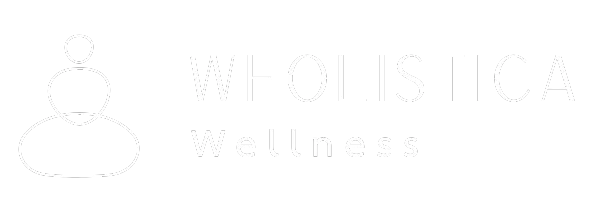OUR BLOG

Pre- and Post-Workout Herbal Supplements: What Works Best?
Getting the most out of a workout isn't just about effort. Preparation and recovery play a huge role in performance, endurance, and progress. While many turn to synthetic pre-workout formulas and recovery powders, herbal supplements offer a natural way to support the body before and after exercise.
Certain herbs have been used for centuries to boost energy, stamina, and muscle repair. Adaptogens help the body handle physical stress, while anti-inflammatory herbs assist with recovery. Understanding which herbs work best before and after training can make a difference in strength, endurance, and overall performance.
Best Herbal Supplements to Take Before a Workout
Pre-workout supplementation is all about energy, focus, and endurance. The right combination of herbs can help muscles perform at their best while supporting mental clarity and stamina.
Rhodiola Rosea
This adaptogenic herb is known for its ability to fight fatigue and improve endurance. Rhodiola helps increase oxygen uptake, allowing muscles to work longer without tiring as quickly. It also supports focus, making it a great alternative to synthetic stimulants.
Ashwagandha
Ashwagandha helps regulate cortisol levels, which can reduce stress-related fatigue and support better energy levels during exercise. Some studies suggest that it enhances strength and muscle mass, making it a great option for resistance training.
Beetroot Powder
Although technically a food, beetroot is commonly used as an herbal supplement due to its high nitrate content. It helps improve blood flow and oxygen delivery, leading to better stamina and performance.
Cordyceps
This medicinal mushroom has been linked to increased ATP production, which provides energy to muscles. Cordyceps can improve endurance and help the body use oxygen more efficiently, making it a solid choice for runners, cyclists, and other endurance athletes.
Ginseng
A well-known adaptogen, ginseng is used to boost energy and focus. It helps fight physical and mental fatigue, making it useful for those who need an extra push during training.
Best Herbal Supplements to Take After a Workout
Recovery is just as important as the workout itself. Without proper recovery, muscles remain inflamed, energy levels drop, and performance suffers in future sessions. Certain herbs support muscle repair, reduce soreness, and help the body bounce back faster.
Turmeric with Black Pepper
Curcumin, the active compound in turmeric, is a powerful anti-inflammatory agent. When paired with black pepper, absorption improves significantly. This combination helps reduce muscle soreness and supports faster recovery after intense exercise.
Ginger
Like turmeric, ginger has strong anti-inflammatory properties. It helps reduce muscle pain and stiffness, making it useful for both post-workout recovery and joint health.
Holy Basil (Tulsi)
Known for its adaptogenic properties, holy basil helps the body manage stress and recover from physical exertion. It also has mild anti-inflammatory effects that support overall muscle repair.
Moringa
Moringa is packed with antioxidants, amino acids, and essential nutrients that help replenish the body after exercise. It aids in muscle recovery and reduces oxidative stress caused by intense workouts.
Maca Root
Maca is often used to support endurance and recovery. It helps balance energy levels and may aid in reducing post-exercise fatigue.
Choosing the Right Herbal Supplements
Not all herbal supplements are created equal. The quality and sourcing of herbs determine their effectiveness. Brands like Ruved offer high-quality herbal supplements that are backed by science and formulated for maximum benefits. Choosing well-sourced herbs ensures that the body receives the full range of benefits without unnecessary additives or fillers.
How to Incorporate These Herbs into a Routine
Pre-workout herbs work best when taken 30 to 60 minutes before training. This gives the body enough time to absorb their active compounds and put them to use during exercise. Adaptogens like ashwagandha and rhodiola can be taken daily to build long-term resistance to fatigue.
Post-workout herbs should be taken immediately after training or with meals. Turmeric, ginger, and moringa work well in shakes, teas, or capsules. These herbs help with muscle repair and reduce soreness, allowing the body to recover more efficiently.
Hydration and proper nutrition also play a role in maximizing the effects of herbal supplements. Pairing them with a protein-rich meal and staying hydrated supports faster muscle repair and energy replenishment.
Herbal supplements provide a natural way to support both performance and recovery. Whether the goal is to improve stamina, reduce fatigue, or speed up muscle repair, certain herbs can make a difference. Choosing high-quality supplements and using them consistently can help enhance training without relying on synthetic stimulants or artificial recovery aids.
One or more of the links above are affiliate links, meaning, at no additional cost to you, we will earn a slight commission if you click through and make a purchase. Each of these products is chosen by a trusted member of our team.

Copyright 2024. All rights reserved
